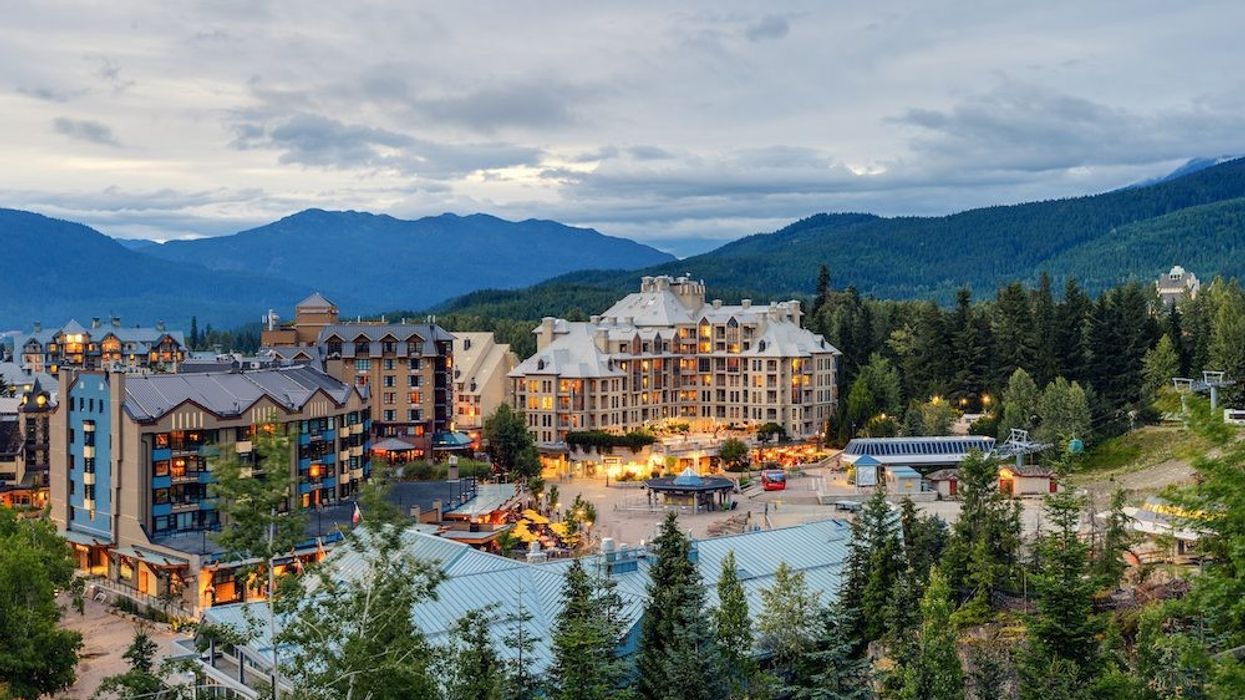After three months cooped up in their cabin in Ontario's Kawarthas, home-schooling three kids under the age of 10 and running two businesses remotely, Toronto technology consultant Julie Persofsky and her entrepreneur husband Jonathan knew they had to get out. “We started exploring our options when it became apparent that Ontario was going to lock down for another school year. Jonathan had worked at Whistler for a couple of seasons back in the early 2000s and we submitted our application for the Whistler Waldorf school on the very last day that they were accepting applications.”
The price of leaving was steep. “We had just moved into what we called our ‘forever home’ in Toronto,” Julie says.
Despite Whistler’s incredibly tight rental market, the Persofskys “miraculously” found a 10-month long rental in Whistler’s Spring Creek subdivision, sublet their Toronto house for 13 months, and embarked on a grand adventure, packing all three kids and their dog into a U-Haul for the trek out west in August 2020.
And they were not alone. According to Whistler Real Estate Company managing broker Dave Higgins, the number of people from Ontario buying property in the award-winning four-season resort went from 12 in 2019 to 32 in 2021. He cautions, though, in calling it a ‘trend.’
“Your couple from Toronto, or the Bank of America executive who lives here, are outliers when it comes to the Whistler market. In 2020, the number of sales to non-Canadians fell from 20% to 5% and while some of those new buyers certainly came from Ontario, the vast majority were from the Lower Mainland. We did see a lot of American buyers when the dollar was at $0.63, as well as buyers from Mexico and the UK. But in 2021, that shifted to being entirely Canadian.”
“What’s going on is a continuation of what I would call the core Whistler market. The pandemic and lack of travel/recreation options tipped people who were thinking of investing in Whistler to make that first-time purchase. We are a second-home market that you can drive to in under 2.5 hours. A small segment of Vancouver buyers are selling their weekend condos and moving up to larger townhomes and single-family homes to accommodate working from home.”
Not Your Typical Suburban Market
Whistler, it’s important to note, is not a suburb of Vancouver. It’s not the kind of market you would see farther east of Vancouver in the Fraser Valley, where single-family house prices doubled during the pandemic. That action has been driven primarily by young families living in cramped downtown condos moving east for more space. When both parents are working from home and perhaps home-schooling their kids at the same time, purchasing a more spacious house in the suburbs is a no-brainer, especially if the need to commute for an hour per day is no longer a requirement.
While the drive can be made (in perfect conditions) in 90 minutes, that ‘can’t miss meeting’ downtown likely requires another hour in advance planning in case of inclement weather, an accident being cleared up, or facing what seems like 24/7 rush hour once the Sea-to-Sky Highway bends into Vancouver and its notorious bridge and tunnel traffic.
Vancouver homeowners re-locating to Whistler, however, might have to reduce their expectations somewhat. Their $2M single-family home home in Canada’s priciest urban market is out of step with Whistler’s nosebleed $3.3M median.
Read: BC's Priciest Homes Increased in Value by the Millions in 2021
Higgins also notes that “Whistler’s official community plan operates under a 'hard bed' base which limits developers from building new units onto the market.” These restrictions have forced workers and investors to build in Squamish and Pemberton, two communities within a half-hour’s drive of Whistler. Squamish, in fact, posted a 22% increase in population from 2016 – 2021 according to census statistics released last week.
Whistler Better Equipped to Welcome Newcomers
Whistler-based planning consultant Harry Measure says that “amenity migrants -- people pulling up stakes from major cities and moving to resort towns -- has been happening since the advent of broadband internet, which has been slow to arrive in some BC communities. Telecommuters have been making Whistler home since the late 90s, but what I’ve found is that smaller BC communities -- especially those without planning for growth strategies in place -- are not well-equipped to handle an influx of newcomers who are probably used to a much higher level of services than these places provide. It’s a growth opportunity for some of these smaller communities to diversify their economy and increase the tax base if it’s properly planned for.”
Read: This is What a $17-Million Chalet in Whistler Looks Like
Another Toronto émigré interviewed for this story negotiated a telecommuting arrangement and has spent the past two winters enjoying Whistler’s slopes while “living on Eastern time.” Interestingly, he does not expect work from home arrangements to last once the pandemic ends. “I’ve worked in sales for three decades. These are complex deals that take face-to-face negotiations.” It would seem that Zoom meetings appear to have their limits.
As for the Persofskys, their new move has worked out incredibly well. “I can’t say enough about the teachers and parents behind the local Waldorf School. We moved out of our rental, sold our house in Toronto when the market was hot and moved into our new home in Alpine Meadows back in September. I love that everyone here wants to take advantage of Whistler life, meetups with friends have become skiing, walking, or paddle boarding rather than just going for coffee. The skiing really is mind-blowing; after skiing opening day in 2020, I told my husband that it was worth the move just to experience this one day.”





















